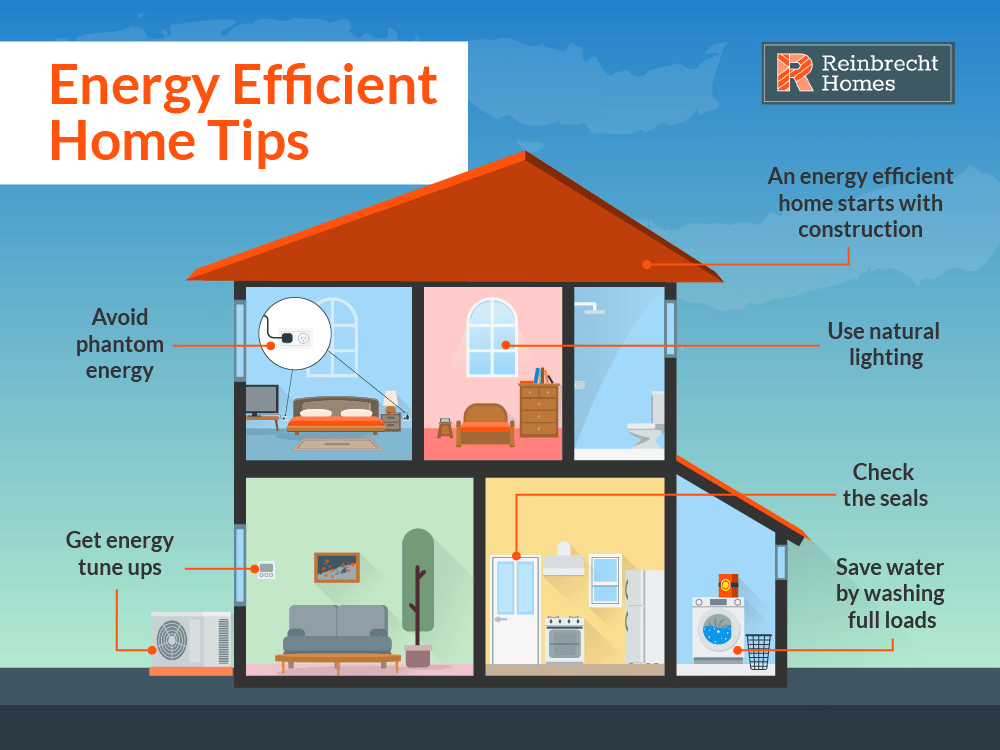Brickie Leaks: Uncovering the Hidden Stories
Dive into a world of revealing news and insights.
Eco-Chic Living: Transform Your Home into an Energy-Saving Haven
Transform your home into an energy-efficient paradise with eco-chic tips and stylish ideas for sustainable living. Click to discover how!
10 Simple Ways to Make Your Home More Energy-Efficient
Making your home more energy-efficient not only helps reduce your carbon footprint but also saves you money on utility bills. Here are 10 simple ways you can enhance your home's energy efficiency:
- Upgrade to Energy-Efficient Appliances: Investing in ENERGY STAR-rated appliances can significantly lower energy consumption. For guidance on which appliances are best, visit ENERGY STAR.
- Seal Windows and Doors: Air leaks can waste a substantial amount of energy. Use weatherstripping or caulking to seal gaps and prevent drafts.
- Use Programmable Thermostats: By installing a programmable thermostat, you can set temperatures according to your schedule, reducing energy use when you're not home.
- Improve Insulation: Proper insulation in your walls, attic, and floors can keep your home comfortable while lowering heating and cooling costs. A good resource for insulation types is Energy.gov.
Additionally, consider the following strategies to further enhance your home's energy efficiency:
- Switch to LED Lighting: LED bulbs are more energy-efficient and have a longer lifespan than traditional incandescent bulbs.
- Utilize Natural Light: Open curtains during the day to take advantage of natural sunlight, minimizing the need for artificial lighting.
- Install Low-Flow Fixtures: Low-flow faucets and showerheads reduce water consumption, which can lead to lower energy use for water heating.
- Consider Renewable Energy Options: Installing solar panels can drastically reduce energy bills and your reliance on fossil fuels. For more information on solar energy, check out SEIA.
- Regular Maintenance: Ensure your HVAC system is regularly serviced to operate at peak efficiency.

Are You Living in an Energy-Saving Haven? Take This Quiz!
Your home should be a sanctuary, not just in terms of comfort, but also regarding energy consumption. In today’s world, being conscious of our energy use is essential for the environment and our wallets. Are you living in an energy-saving haven? To find out, ask yourself a few questions: Do you use energy-efficient appliances? Is your home properly insulated? These factors play a significant role in your energy usage. For tips on achieving better energy efficiency, check out Energy Saver.
If your answers reveal room for improvement, don't worry! There are plenty of simple changes you can adopt to transform your home into an energy-saving haven. Consider implementing a smart thermostat or switching to LED lighting to lower your energy consumption. Taking control of your energy use not only benefits your finances but also contributes to a more sustainable planet. Ready to take the plunge? Take our quiz now to discover how energy-efficient your home really is!
The Latest Eco-Friendly Home Trends: What You Need to Know
As the world increasingly prioritizes sustainability, eco-friendly home trends are becoming a central theme in modern living. From energy-efficient appliances to sustainable building materials, homeowners are making informed choices that not only reduce their carbon footprint but also enhance overall well-being. One significant trend is the rise of smart homes, which utilize technology to optimize energy usage. For example, smart thermostats can adjust heating and cooling based on occupancy, ultimately leading to lower energy bills and a lesser environmental impact. For more insights on smart home technology, you can visit Energy.gov.
Another noteworthy movement in the realm of eco-friendly home trends is the incorporation of biophilic design principles, which aim to connect residents with nature. This is achieved through the use of natural materials, ample greenery, and respect for the surrounding ecosystem. Strategies such as installing green roofs or using reclaimed wood not only create a healthier living environment but also enhance aesthetic appeal. Additionally, integrating solar panels is gaining traction, allowing homeowners to harness renewable energy. To explore more about sustainable architecture, check out Architectural Digest.